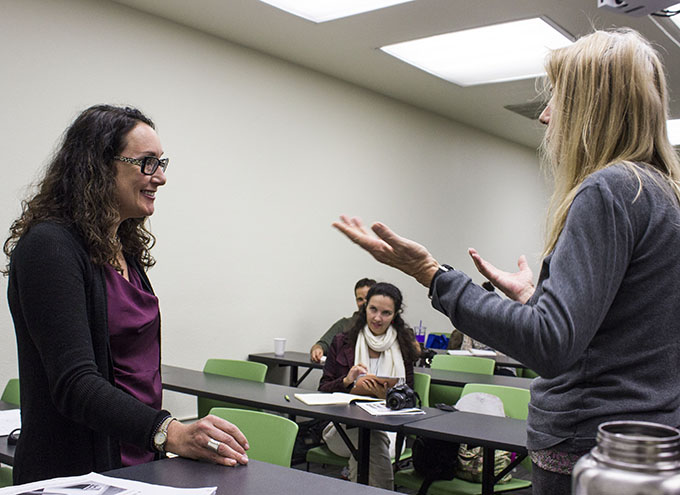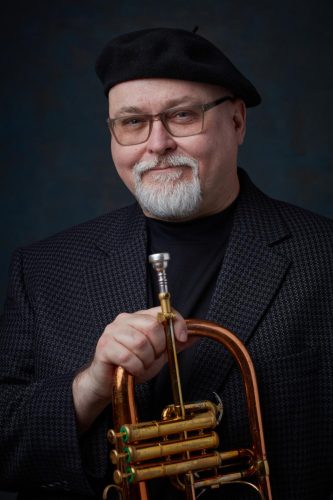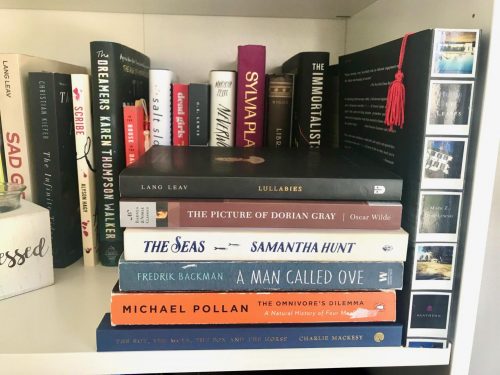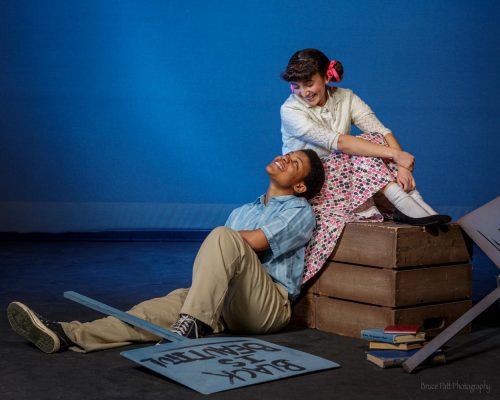Published writer teaches the ins and outs of travel writing at SummerWords
Suzanne Roberts, a published writer, leads a workshop on travel writing at SummerWords.
Suzanne Roberts said that one way for travel writers to get into writing about a location is to look at their hobbies during her workshop at SummerWords.
“When you think about the things that you already love, or you already know how to do really well, they become your niche,” said Roberts.
Travel writers are looked upon the same as tourists, Roberts said.
“When you go and do human rights advocacy, you’re no longer a tourist anymore,” Roberts said. “You go volunteer, you go to teach, you go as someone’s guest.”
Roberts said that the best way to write dialogue is to make it up. She said that the writer will most likely not remember everything that had been exactly said. She further argued that improvising on dialogue is not the same as making up scenarios.
Roberts said that all travel writing has conflict, and that there is a substantial amount of the conflict has to do with a quest.
There are two types of travel writing: literary place-based writing and service writing.
Literary travel place-based writing is a work that takes place in a setting that couldn’t happen anywhere else, while service writing to give readers advice on how to travel.
Literary travel placed writing tends to be written in first-person perspective, while service based writing utilizes second-person perspective.
Viola Allo, a poet who is also a student at American River College, said that she attended Roberts’ workshop to learn from a different writer than someone who is already a faculty member at ARC.
“I loved how she wrote out how you show and tell, because I have that problem of wanting to show people things, instead of just showing it to them,” said Allo.
Mary Weikert, a photographer who attended Roberts’ workshop, said that as a reader of travel writing, she was happy that she was able to participate in an event that teaches people what travel writing is.
“(I learned) that travel writing is so much fun, and that people do incorporate it in their life in a happy way.”












Suzanne Roberts • Jul 13, 2015 at 7:44 pm
Thank you so much for your interest in my Summer Words workshop on Travel Writing. However, there were a few places that you captured what I said quite inaccurately. First, I did not say the best way to write dialogue is to make it up. I said that in order to use direct dialogue, sometimes you have to re-create it, which means looking at your notes, journal, emails, letters, etc. and figuring out how to recapture what was said–and that the writer must stay true to the essence of what was said. Also, the quote about being a tourist and a travel writer was taken out of context and just sounds plain weird. What I said was that travel writers need to find a way into the culture more deeply than the usual perspective of a tourist, who sometimes sees things through a narrow or stereotypical lens (though locals will still see you as a tourist unless you volunteer, work as a human rights advocate, visit as someone’s guest, etc.). Lastly, my definition of literary travel writing is that the story makes the reader feel like he or she has been there; whereas, service-oriented writing offers advice, as well as making the reader want to plan a trip to that destination. Thanks again for your interest in the class.